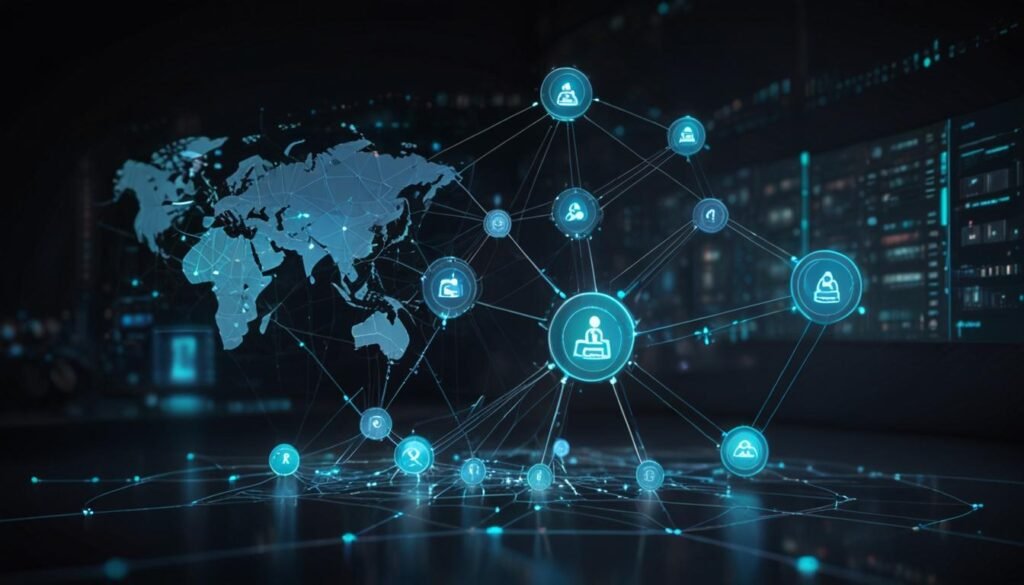The emergence of AI agents heralds a significant shift in business automation, enabling more complex tasks and interconnectivity in tools like HubSpot’s new agent.ai network.
AI Agents Poised to Lead the Next Evolution in Business Automation
Artificial Intelligence (AI) has been steadily redefining the landscape of various industries, but the horizon ahead may see an even more profound transformation thanks to the emergence of AI agents. These agentic AIs are expected to handle tasks far beyond the capabilities of today’s copilot systems, with the next wave facilitated by networks of agents functioning with minimal human interaction.
Sam Altman, CEO of OpenAI, has long championed the potential of AI agents. Nearly a year ago, at OpenAI’s unveiling of an online store for custom GPTs, Altman expanded on how these agents could undertake more intricate tasks than the current AI copilots. This vision of the future aligns with insights from Dharmesh Shah, co-founder and Chief Technology Officer (CTO) of HubSpot, who sees networks of collaborative AI agents as the logical progression in AI innovation.
In a recent Zoom interview with ZDNet, Shah elaborated on his outlook, explaining that AI agents are a natural evolution from current copilots. “Agents are effectively a progression up from copilots,” Shah said. “They can take on higher-order goals that typically involve multiple steps.”
HubSpot, which is locked in competition with firms like Salesforce, is already integrating these agents into its suite of tools designed for Customer Relationship Management (CRM), covering sales, marketing, and beyond. The company aims to interconnect these agents through a marketplace model. At its annual user conference, Inbound, held last week, HubSpot revealed a new network called agent.ai, along with a suite of AI solutions branded as Breeze.
HubSpot disclosed that the agent.ai network now boasts over 47,000 users and has attracted more than 1,700 developers interested in creating their own agents. Shah described the initiative as a professional network for agents, distinct from human-focused platforms like LinkedIn. The concept involves teams of agents, including “mini agents” overseen by a supervisory agent, collaborating to achieve complex tasks.
For instance, an agent designed to assist with company research could scour public company transcripts and earnings calls, while another might gather data from a corporate website to monitor web traffic and other metrics. The agents would then compile their findings, effectively functioning as a cohesive digital team. “Over time, as these agents develop, they’re going to be able to, kind-of, use each other,” Shah said. These agents can be “composed like Legos” to build higher-order structures.
The network, termed “digital teammates,” allows users to identify which agents are best suited for specific tasks based on feedback and experience showcased within the agent.ai marketplace. Shah noted that past efforts to create interoperable collaborating systems, such as the CORBA standard of the 1990s, were hindered by technical difficulties. However, the natural language capabilities of generative AI are poised to overcome these barriers, providing a new level of compatibility.
“Using natural language as the API for agents, instead of coding in different languages, unlocks a new level of interoperability,” Shah said. This advancement means that both humans and other agents can interact with these AI agents more seamlessly.
Shah believes the advent of agentic AI and the networks they form represent a paradigm shift in CRM software, akin to the transformative impact of cloud computing in the mid-2000s. “We’re going to have now a new kind of paradigm, which is going to be an AI-based smart CRM,” he remarked.
The competitive landscape in CRM, involving players like HubSpot and Salesforce, will hinge on which platform can best deploy these AI agents for users and developers alike. Shah is optimistic about the future, foreseeing a new generation of developers dedicating their efforts to building innovative solutions within these AI ecosystems.
“Agents are the new apps,” Shah concluded, emphasising the exciting potential for developers within this burgeoning field. The ongoing evolution in AI suggests a significant transformation, both in how businesses operate and in how developers craft solutions to meet complex challenges in the digital age.
Source: Noah Wire Services
















